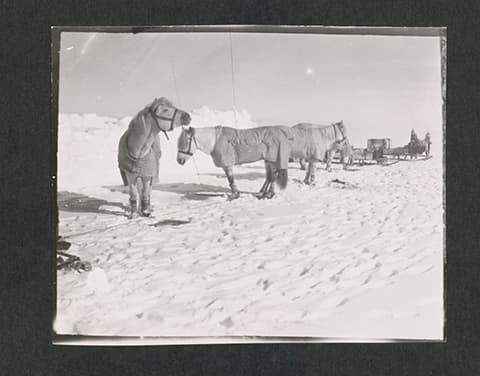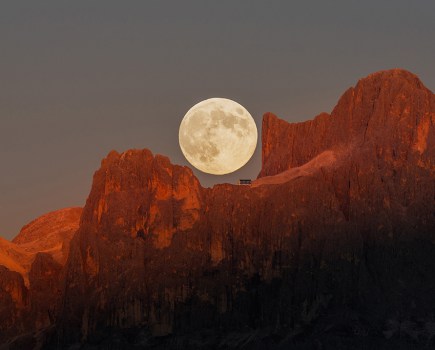Picture credit: Scott Polar Research Institute
Previously thought to have been lost forever, the collection of 113 negatives – captured by Captain Scott in 1911- risked ending up overseas and unavailable for future research and public exhibition in the UK.
However, the National Heritage Memorial Fund has stepped in to rescue the treasured images by awarding a grant of £233,450 to the Scott Polar Research Institute in Cambridge.
The funding means campaigners have raised the £275,000 needed to buy the archive.
Sir Ranulph Fiennes, who spearheaded the campaign and launched a video appeal to save the pictures, said: ‘If the Scott Polar Research Institute had not been successful then there was every chance that they would have been sold abroad and into a private collection.’
He added: ‘Scott’s negatives can now take their rightful place in Cambridge alongside the camera on which they were taken, as well as the remaining Scott and Herbert Ponting prints – all of which speak so powerfully to us of the courage and sacrifice of those on the British Antarctic Expedition.’
The images will go on show in a public exhibition following a period of conservation and research.
The Institute says it does not yet have a timeline for this work.
Professor Julian Dowsdeswell, director of the Institute said that ‘once digitised, we will ensure that these resources will be within reach of a worldwide audience’.
Dame Jenny Abramsky, chair of the National Heritage Memorial Fund said: ‘Captain Scott’s images provide us with an extraordinary insight into the rigours of his epic but ultimately doomed expedition.
‘As precious as the corresponding original prints, these negatives record not only day-to-day life in the Antarctic but also the development of Scott’s photographic skills.’
Dowdeswell added: ‘As we have no budget for acquisitions we have been delighted to see how the story of Scott still captures the public imagination.’
The National Heritage Memorial Fund describes itself as a ‘fund of last resort to save items of outstanding importance to the nation’s heritage’.

Henry ‘Birdie’ Bowers, Cape Evans, October 1911 [picture credit: Scott Polar Research Institute]








